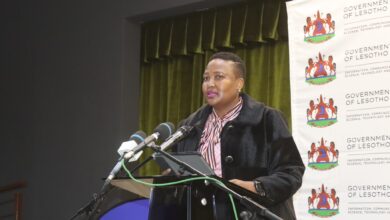Political Instability: Lesotho’s Ongoing Challenge

Political instability has emerged as a critical factor contributing to Lesotho’s internal conflicts, according to Dr. Kelello Rakolobe. Speaking at a bicentenary conference at the National University of Lesotho on Wednesday, Dr. Rakolobe delved into the country’s political history, emphasizing how it has shaped the current landscape.
Dr. Rakolobe began her address by recounting the political turbulence that has characterized Lesotho since its first General Assembly elections in 1965. She highlighted the divide between the Basotho National Party (BNP) and the Basotho Congress Party (BCP), noting that their disagreements regarding the country’s path to independence were early indicators of the instability that would follow. This political rift laid the groundwork for ongoing discord within the nation.
In her analysis, Dr. Rakolobe pointed to the second elections in Lesotho, where the BNP’s then-leader, the late Mr. Leabua Jonathan, exhibited a refusal to accept the electoral results. This decision led to a period of significant unrest, as Jonathan maintained his grip on the Prime Minister’s office until 1986, when the army intervened and ousted him from power.
The tumultuous history did not end there. Dr. Rakolobe recounted the 1994 palace coup that followed a transition to a democratically elected government, illustrating how fragile democracy can be in the face of entrenched political interests. This instability was further compounded by the BCP’s split in Parliament, resulting in the formation of the Lesotho Congress for Democracy (LCD), which assumed power without undergoing an electoral process in 1997.
Dr. Rakolobe’s observations underscore the significance of political history in understanding Lesotho’s current state of affairs. The patterns of conflict, power struggles, and the refusal to accept democratic outcomes have created a legacy of instability that continues to affect the nation today.
As Lesotho celebrates its bicentenary, it is crucial for its leaders and citizens to reflect on these historical lessons. Addressing the roots of political instability and fostering a culture of collaboration and respect for democratic processes will be essential in paving the way for a more stable and prosperous future. By acknowledging and learning from past mistakes, Lesotho has the opportunity to move beyond its tumultuous history and work towards unity and progress.
Join 'Lesotho News' WhatsApp Channel
Get breaking Lesotho news — delivered directly to your WhatsApp.
CLICK HERE TO JOIN



